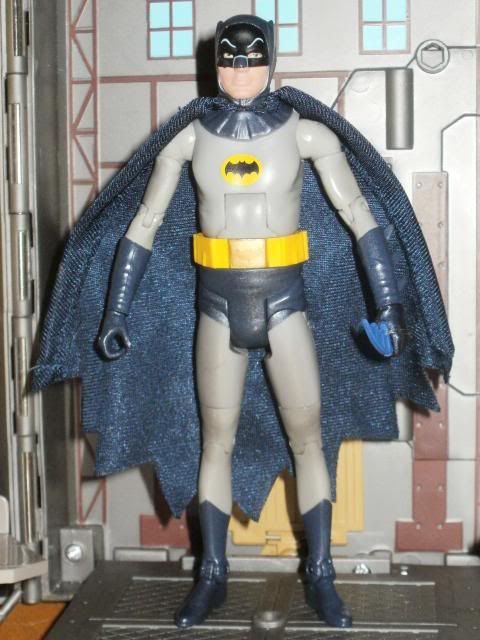Post#5 » by Jammer » Fri Apr 17, 2009 10:55 am
From today's Boston Globe:
By Stephen Smith
Globe Staff / April 17, 2009
Kevin Garnett, the warrior hero of the champion Boston Celtics, appears destined to watch this year's playoffs from the sideline, hobbled by a balky right knee that has kept him off the court for most of the past two months, the team revealed yesterday.
...
The disclosure, emerging after the team had previously minimized the severity of the injury, raised as many questions as it answered - most prominently, what is the extent of the power forward's injury?
...
"He's out for the playoffs? Goodbye, Boston," said Dr. Nicholas DiNubile, an orthopedic surgeon who previously was team orthopedist for the Philadelphia 76ers.
...
Celtics coach Doc Rivers said yesterday that as he watched Garnett struggle through a workout at the team's practice facility in Waltham, the veteran player's knee appeared swollen and locked. Consequently, the coach said, one-third of his star trio will miss the Celtics' first-round series against the Chicago Bulls, and the team expects that, in all likelihood, Garnett will be absent from further postseason play if the team advances.
"It's not official that he's out for the entire playoffs, but it's official as far as I'm concerned," Rivers said yesterday. "I hope I'm wrong, but I just don't see it."
The coach described the injury as a strain to the popliteus tendon, which sits at the back of the knee, on the outside, and bisects the big joint that is the knee's fulcrum.
Garnett will probably have off-season surgery to remove a bone spur from the knee, Rivers said, but it's the tendon that is keeping him from playing.
But DiNubile said Garnett's symptoms and the projected length of his recovery do not seem consistent with the diagnosis. Instead, another orthopedic specialist speculated that the star player may be suffering from something more severe: damaged cartilage, perhaps, or a floating chip that might be lodged in a recess of the tendon.
"I'd say it's not likely" that it's a damaged popliteus tendon, said Dr. Riley Williams, the New Jersey Nets' team physician and an orthopedic surgeon at the Hospital for Special Surgery in New York. "It's such an unusual diagnosis. It seldom occurs in isolation."
"He's probably having a meniscus tear they're probably not seeing," DiNubile said, referring to the cartilage that acts like a shock absorber in the knee. "I can tell you it's not a strained tendon. A strained tendon would not give you the swelling and the ongoing symptoms. That's not a strained popliteus tendon."
...
'It's not official that he's out for the entire playoffs, but it's official as far as I'm concerned,' Doc Rivers said.
If the injury is something more severe - cartilage damage, for example - Garnett could be facing surgery requiring six months to recover, or even longer.
...
It was Feb. 19, in a game against the Utah Jazz in Salt Lake City, when Garnett reported pain in his right knee while jumping for a lob pass. After tumbling briefly to the court, he hopped on his left foot to the locker room. He was diagnosed with a strained knee.
The next day, Ainge said Garnett was expected to be out three to four weeks. When the day of Garnett's anticipated return arrived, March 15, Rivers said Garnett would accompany the team on its next road trip. Garnett returned to play five days later, appearing for 17 minutes in a win at San Antonio. He played in just three more games.
For patients with strains of the popliteus tendon, treatment typically consists of rest, ice, and physical therapy, said Dr. Helene Feiler, an orthopedic surgeon at Excel Orthopedic Specialists in Woburn. Most people with that type of tendon injury recover within two to six weeks, she said.
"So I would have expected him to have improved, if not recovered" by now, said Feiler, who trained at New England Baptist Hospital, home base of the Celtics' medical team.
...
It's also conceivable, another orthopedic surgeon said, that the reported diagnosis of a strained popliteus tendon only partially characterizes the full extent of the damage.
Dr. John Trey Green, chief of sports medicine at the University of Washington in Seattle, said that when specialists encounter a strained popliteus tendon, it is usually in conjunction with something else that has sustained damage.
"It may be, in fact, that he had another injury in addition that is on the hush-hush. Perhaps he's got more," Green said.
...
The article continues, but I didn't post all of it.
This is what a few of us posters have been saying for a while,
in the face of quite a bit of harassment.
When KG's "bone spur" is removed, expect to see an announcement along the lines of
while the doctors were at it, they removed some loose cartilage
(which can obstruct a knee just like gunk in a door hinge)
















